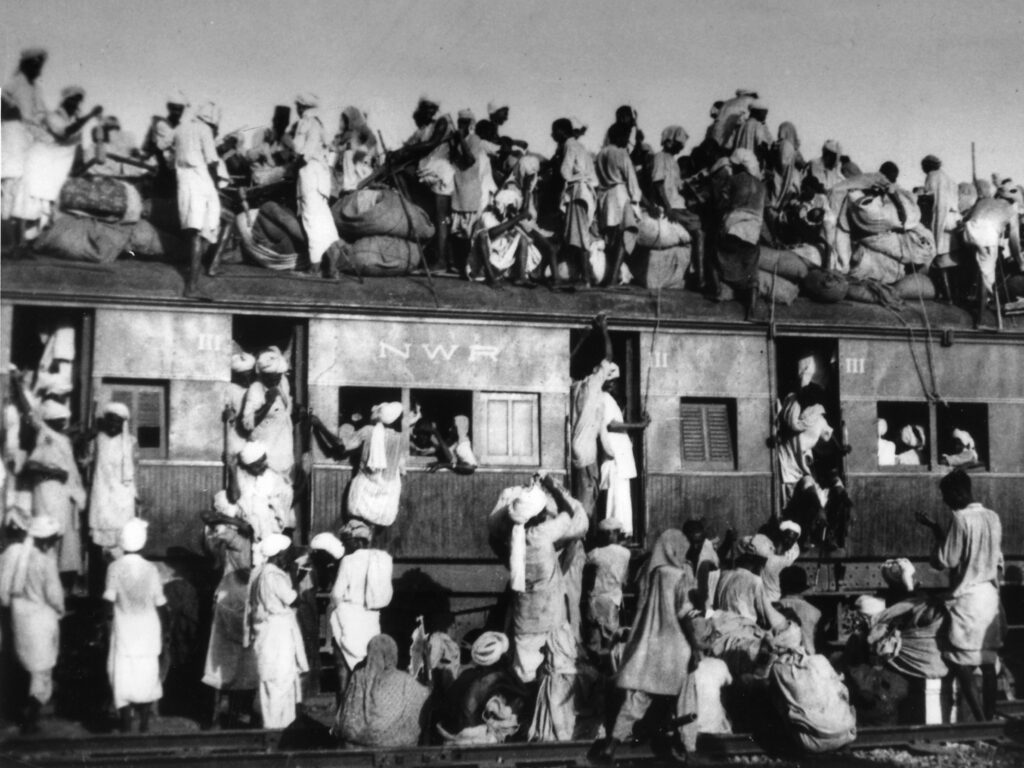As an Indian Muslim today, I observe the unraveling of Pakistan. Previously, whenever Pakistan and the Partition were brought up, there was a feeling of sorrow and longing. However, witnessing Pakistan’s continuous cycle of crises, be it related to democracy, Muslim identity, minority rights, women’s rights, or its association with sponsoring terrorism, I am grateful that my family opted not to migrate to the newly formed Muslim nation in 1947 and instead embraced India. As a proud Indian Pasmanda Muslim woman, I enjoy the freedom to express myself through my choice of clothing, singing, speaking, praying, eating, writing, and voicing my opinions in India.
And the Partition nostalgia industry is increasingly irrelevant today.
I find it commendable that in India, despite certain problematic mindsets observed among sections of the Muslim population, the successful democratic government has managed to prevent these issues from overshadowing society at large. While instances of sectarian conflicts may exist within the Indian Muslim community, it is worth noting that the majority of Indian Muslims coexist harmoniously. Ahmadiyya Muslims in India also face discrimination from certain segments of the Muslim community. However, unlike in Pakistan, they are not required to declare themselves as non-Muslims to obtain a passport or face legal repercussions based on their religious identity. India’s pluralistic ethos and commitment to secularism have fostered an environment conducive to diverse communities living together in peace.
The instances mentioned earlier merely scratch the surface when it comes to understanding the deeper issues that have plagued Pakistan. The country grapples with a myriad of complex challenges, including an identity crisis stemming from a reluctance to acknowledge its Indic roots. Pakistan’s pursuit of an Islamic identity has created an environment where even minor differences in religious practices can lead to excommunication and persecution. Sectarian conflicts persist, and minorities face various forms of oppression, such as the abduction of non-Muslim girls, the mistreatment of Ahmadiya Muslims, and countless other instances.
Thank you, India
Indian Muslims are fortunate to reside in a secular and democratic nation that upholds progressive values. They enjoy the privilege of active participation in the country’s development, reaping economic benefits, accessing secular education, contributing to scientific advancements, and experiencing good governance. The Indian democratic system places significant emphasis on social justice, implementing numerous policies for the welfare of the Muslim community. Nevertheless, it is crucial to acknowledge that the internal adoption of social justice within the Muslim community, particularly in addressing the needs of Pasmanda (lower-caste) Muslims, has fallen short compared to the strides made by the Hindu community.
As an Indian Muslim woman, I cherish the rights and freedom to make my own choices regarding wearing the hijab. The State does not engage in moral policing, granting me the autonomy to decide whether to wear it or not. Additionally, I have access to various women-centric laws and policies designed to protect and empower women. However, Muslim personal laws in India remain discriminatory towards Muslim women. Furthermore, unlike in Pakistan, Indian Muslim women are not subjected to the Zina Hudood Ordinance, which has received criticism for its discriminatory treatment of rape victims. Indian laws do not require the production of eyewitnesses in rape cases, alleviating the burden of proof for survivors. The list of disparities seems endless.
I consider myself fortunate that my ancestors chose India as their home, despite the partition based on religion. This choice has provided me with the opportunity to grow up in a diverse, multicultural, and secular nation, with Hindus forming the majority.
The 1947 split to two roads
India and Pakistan have taken different paths since the Partition. India has witnessed stable parliamentary democracy, substantial economic growth, and global influence, whereas Pakistan has grappled with political instability and developmental challenges. Currently, Pakistan’s per capita GDP is only about one-tenth the size of India’s. The rich linguistic, religious, and cultural diversity in India provides better opportunities and equitable treatment for Muslims compared to their counterparts in Pakistan. Pakistani Muslims often face scrutiny due to associations with terrorism, leading some to even pose as Indian Muslims to alleviate suspicion. In contrast, Indian Muslims are recognised for their moderate and peaceful nature.
Indian Muslims are keenly aware of the stark contrasts between their lives and those of their Pakistani counterparts across various aspects. They bear witness to the animosity emanating from Pakistan, which not only affects them but also poses a threat to other Indian citizens. Over time, Indian Muslims have evolved within the democratic framework, embracing a more moderate and adaptable approach. This stands in sharp contrast to the limited progress in Pakistan. The industry of Partition nostalgia is gradually losing relevance in the present times, as society moves forward and directs its focus towards addressing contemporary issues and challenges. It raises the intriguing question: If the Muslims of 1947 had the knowledge and foresight to understand the contrasting trajectories of India and Pakistan, would they have made the same choice to migrate to Pakistan?
Source: The Print


